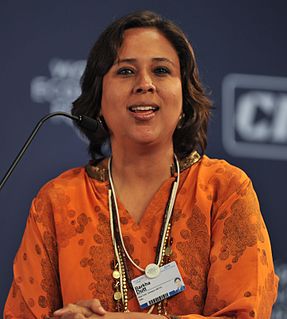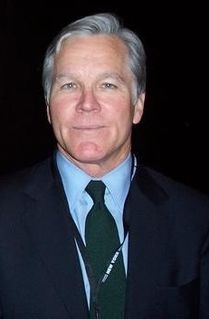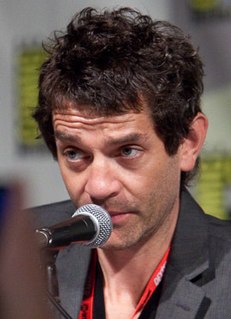A Quote by Barkha Dutt
Much like the death sentence, I believe, hidden cameras should be used in the 'rarest of rare' cases.
Related Quotes
I support the death penalty. I think that it has to be administered not only fairly, with attention to things like DNA evidence, which I think should be used in all capital cases, but also with very careful attention. If the wrong guy is put to death, then that's a double tragedy. Not only has an innocent person been executed but the real perpetrator of the crime has not been held accountable for it, and in some cases may be still at large. But I support the death penalty in the most heinous cases.
We used hand-held cameras 50 years ago. It wasn't something new. Sometimes we used a tripod, or we'd have a tracking shot, and sometimes - like when a character was being chased - we used a hand-held camera because it was right for the scene. In those cases, it helped the mood; it created immediacy and a feeling for the viewer that they were in the scene and in the moment.
I personally have always voted for the death penalty because I believe that people who go out prepared to take the lives of other people forfeit their own right to live. I believe that that death penalty should be used only very rarely, but I believe that no-one should go out certain that no matter how cruel, how vicious, how hideous their murder, they themselves will not suffer the death penalty.
I've been doing photography in one form or another for, oh golly, over seventy years. I don't carry cameras. I used to. For many years I carried cameras wherever I went. Photograph whatever I saw that was of interest. In the last years, I've only used cameras to explore thematic ideas which presented themselves first. And then bring out the cameras to try to explore that idea.
It's kind of like sentencing. A lot of people say that we have a heavy sentence for this crime and a light sentence for another crime, and what we ought to do is reduce the heavy sentence so it's more in line with the other. Wrong. In most cases we ought to increase the light sentence and make it compatible with the heavy sentence, and be serious about punishment because we are becoming too tolerant as a society, folks, especially of crime, in too many parts of the country.
Working in 3D I didn't experience much of a difference, except that the cameras are very big so they can't be moved around with as much ease. It was more like, when you've seen photos of cameras from the 1930s being moved around with these huge cranes. So there was something quite sort of old-fashioned about it almost.
The issue is not whether there are horrible cases where the penalty seems "right". The real question is whether we will ever design a capital system that reaches only the "right" cases, without dragging in the wrong cases, cases of innocence or cases where death is not proportionate punishment. Slowly, even reluctantly, I have realized the answer to that question is no- we will never get it right.
The way social media is now, and people are with cameras - we all live different lives whether you're in the spotlight or not. I mean, you can't be a boss or an executive of a big time company and act a fool, because there are cameras everywhere and people are going to document it and take pictures. I'm not used to stuff like that.
































